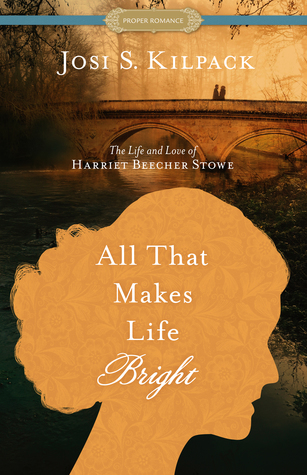
Ashes on the Moor
by
Sarah M. Eden (Goodreads Author)
When Evangeline is
sent to live in a small mill town in Northern England as a schoolteacher
in 1871, she finds herself struggling to fit in with an unfamiliar
culture. Raised with the high-class Victorian values and ideals of a
sophisticated upbringing, she is unprepared for the poverty she finds in
the gritty factory town of Smeatley, where the locals speak with a
hard-to-understand Yorkshire accent and struggle to thrive with few
resources or opportunities.Though she has no training as a teacher, she must prove herself successful before her grandfather will release her substantial inheritance to her and allow her to be reunited with her younger sister, the last remaining member of her family after a fever claimed the lives of her parents and brothers.
Evangeline's sudden change in circumstances is complicated when her aunt—a woman who values class distinctions more than her family relationships—forbids her from acknowledging any connection to her or to her grandfather, Mr. Farr—the man who owns nearly the entire town. For the first time in her life, Evangeline is truly alone.
Heartbroken, she turns to the one person in town who has shown her kindness—an Irish brick mason, Dermot, and his son, Ronan. Despite the difference in their classes and backgrounds, Evangeline and Dermot become friends, due in part to her ability to connect with Ronan, whose behavior requires special attention. The boy is uncomfortable around strangers and rarely even speaks to the other children in town. He often fixates on details other people ignore, and he adheres to specific, self-made rules that give his life order and structure; for example, Dermot's coat must be hung on a specific peg next to the door.
Evangeline attempts to prove herself a worthy teacher and earn the respect of her hard-to-understand students. Determined to find a way to introduce them to "proper English" while still honoring their unique language and culture, she enlists the help of a local family to write down familiar stories in the Yorkshire vernacular. Because of her efforts, the students and their families warm to Evangeline and she continues to look for ways to give the children a chance to become more than factory workers in the local cotton mill.
When the town learns of her upper-class status, Evangeline must work twice as hard to win back their trust--especially Dermot's. In the end, Evangeline and Dermot discover that, even though they come from different social spheres, together they can overcome social prejudices, make a positive difference in the lives of even the humblest people, and enjoy the strength that comes when two hearts find each other.
Ashes on the Moor is the inspiring love story of one Victorian woman's courage to fight against all odds, and the man whose quiet strength gives her the confidence to keep trying.
My Review: 9/10
This was such an enjoyable read. Definitely one of Ms. Eden's best books.
The beginning started a little slow and I had trouble believing anyone could be so heartless in the immediate wake of so much devastation. And Evangeline's meek responses to her aunt's cruelty was hard for me to understand. Over time, Evangeline grows a backbone and becomes fierce, almost to a fault.
I didn't always agree with her convictions or choices (SPOILER* I agreed with the school inspector that her attitude was a bit of a problem at that point. She could have pled her case privately so that she wasn't directly challenging the way things were run. And I certainly thought there was value in teaching the children how to speak "properly." If they ever wanted to get a job outside of their mill in that small town, they would probably need to be able to communicate with others. She could have taught them primarily in Yorkshire dialect, especially as they were young but also taught language classes so that they would be respected and valuable outside of their little town. She could have compromised). But I did like her character development over the course of the novel.
I liked that there weren't always easy answers and that some characters were not so black and white (the vicar for example). I liked the restoration in some relationships and the lack in others; I found it realistic and relatable. No matter how much you try, some things are just out of our control.
I loved Dermot's character and Ronan as well. (*SPOILER* I assumed Ronan was Autistic. It was an interesting portrayal in that time period). Despite heavy subject matter, there was a lot of humor shared between the characters throughout the story, which I appreciated.
Though I love stand alone novels and wish that not every story became a trilogy, I'm invested in these characters now and I can't help hoping for a follow up (maybe Susannah? Or Lucy? Or you know what would be really awesome- Berta. I would love to see her get some healing). I'd highly recommend this book.
